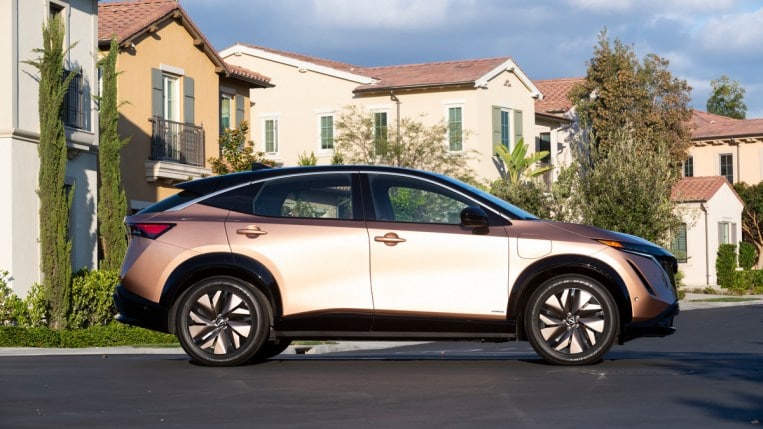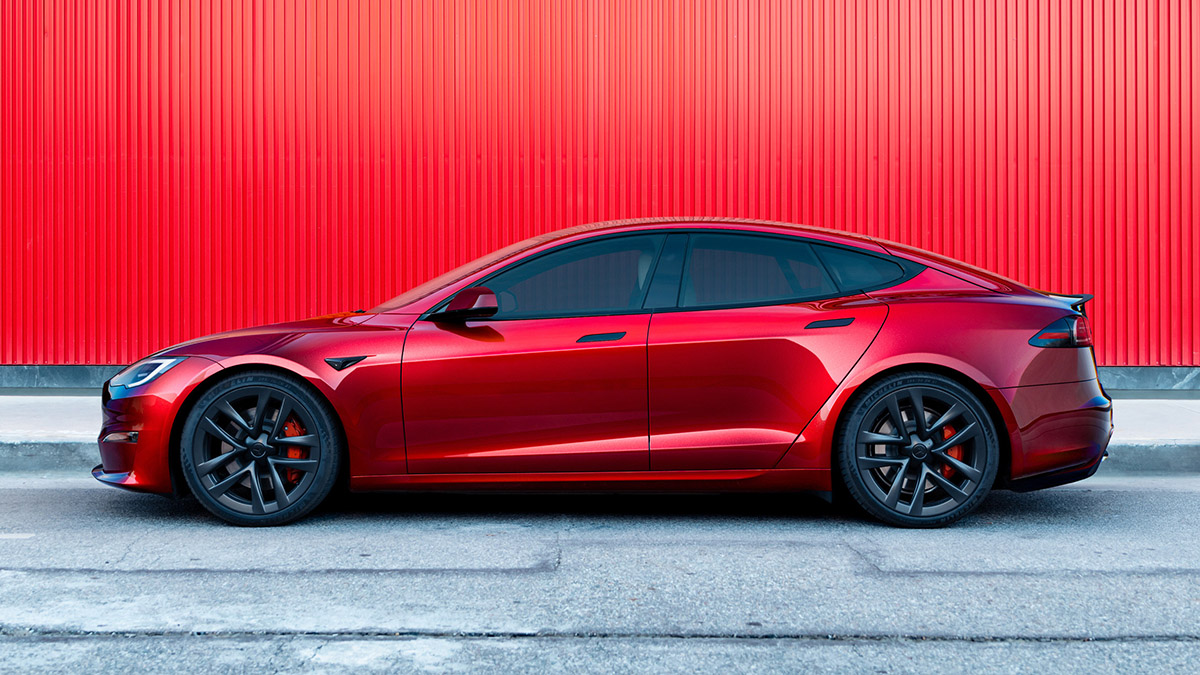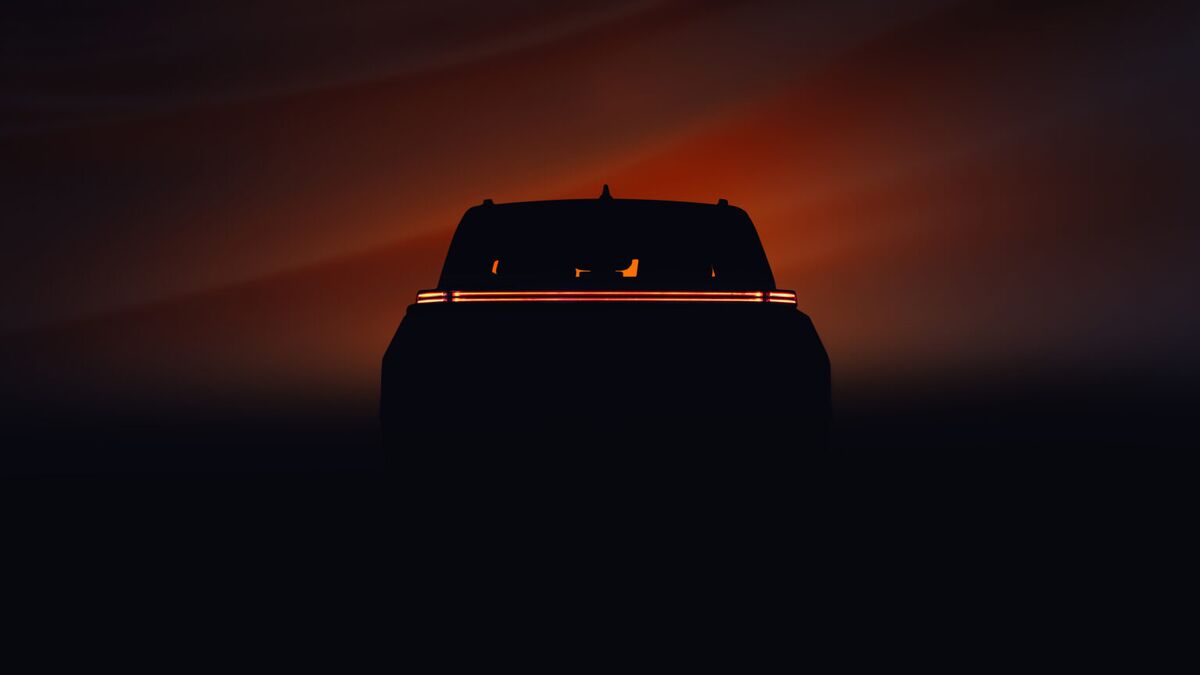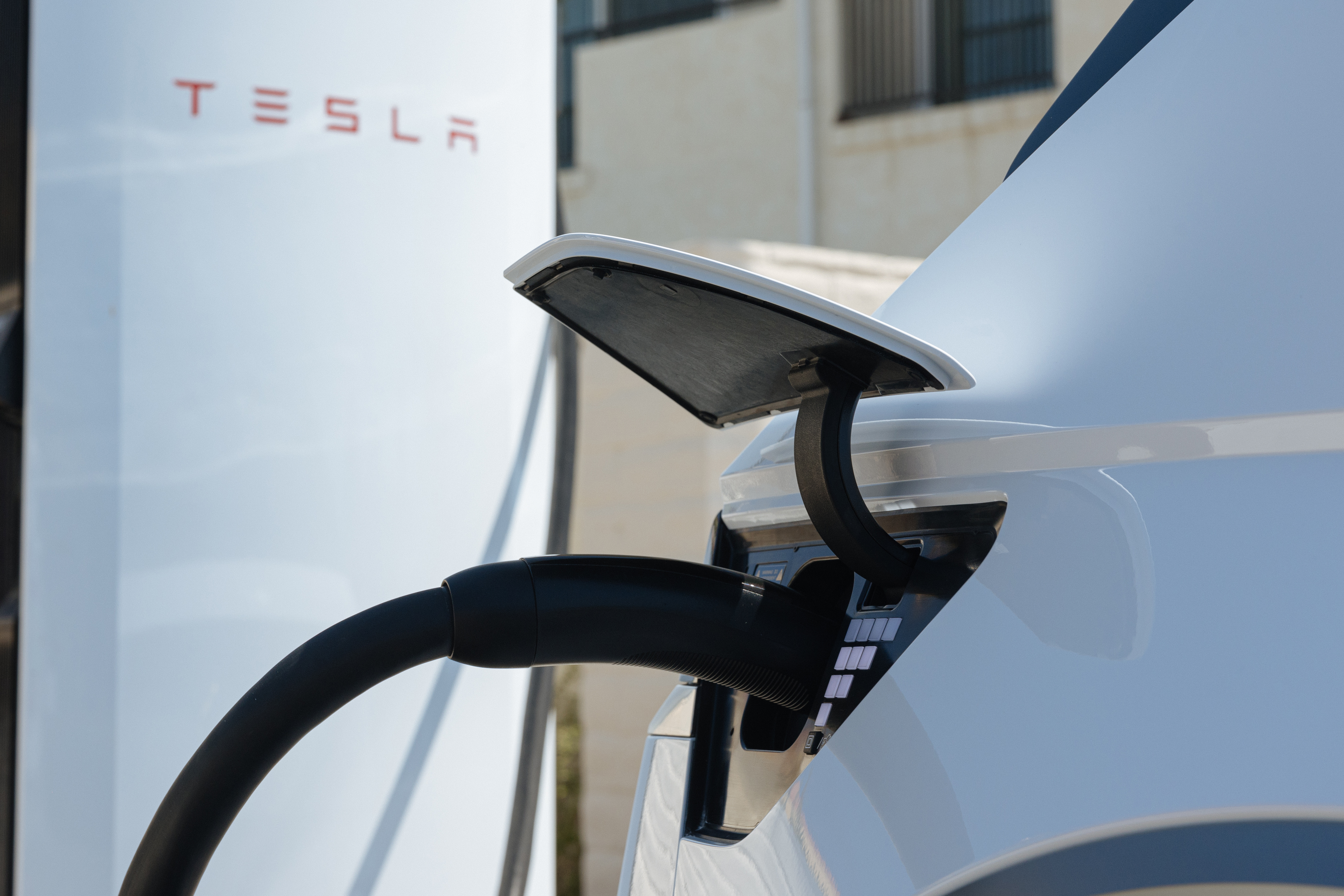
Nissan “plans to have a pilot solid-state battery production plant up and running by 2025; to have completed engineering on the initial technology by 2026; and to then ramp up towards mass production in 2028,” according to the UK’s Autocar.
“We think we have something quite special and are in a group leading the technology,” Nissan senior vice president for research and development in Europe, David Moss, told the magazine.
Today’s EV Batteries Are Far From Ideal
Todays’ EVs almost all use Lithium-ion (Li-ion) batteries – the same technology that powers cell phones and laptops.
Li-ion batteries have enabled electric cars to grow mainstream – EVs made up almost 6% of new cars sold in the fourth quarter of 2022. But the technology has problems.
It’s heavy. Today’s EVs are so heavy that car safety experts are worried about crash safety during the decades when they’ll share the road with lighter gas-powered cars.
Li-ion batteries charge faster than the batteries of the past. But even if owners install a 240-volt Level 2 home charger, most of today’s EVs can take hours to reach a full charge. When experts calculate how many charging stations America needs, they have to account for cars spending far longer hooked up to even the fastest charging stations than they do to a gas pump.
Li-ion batteries can be fire-prone in accidents, requiring careful safety design. And building them involves mining for rare metals in limited supply.
Solid-State Batteries Could Be Smaller, Faster, Cheaper
Solid-state batteries could solve some or all of those problems.
Moss tells Autocar that Nissan thinks it can “get the cost down by 50%” compared to Li-ion batteries. The company also thinks it can “double the energy density” and “offer three times the charging speed” of today’s battery cells.
Higher energy density could mean smaller batteries for some vehicles, or similarly-sized batteries with much longer ranges. Faster charging speeds could make range far less of an issue – few buyers today stress over how far their gas-powered cars can travel between fill-ups because fill-ups happen quickly.
Many solid-state battery designs use fewer rare metals, too. Moss told Autocar that Nissan is working on Li-ion designs that don’t use cobalt. That could cut battery costs by 65%, the magazine says.
Which car will get the first solid-state battery? Moss said the company hadn’t picked a particular platform to debut the technology.
Everyone Else Is Chasing the Same Moonshot
Moss is the first executive we’re aware of to predict a date for solid-state technology. But Nissan is hardly alone in working on it.
Toyota has been public about its own efforts to develop the batteries. BMW recently said it could begin testing solid-state batteries in 2023, though it didn’t say when it might build them into a product for sale. Ford, Hyundai, Mercedes-Benz, Dodge parent company Stellantis, and Volkswagen have all invested in companies developing solid-state batteries.







